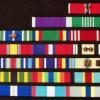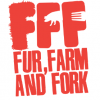I'm looking for opinions or actual experience for the following scenario.
We are a flavor manufacturer, and we are experimenting with using ASTM Type II (reagent grade) distilled water as an ingredient. We purchase it from a reputable lab supply company. If the experiment is successful, we may need to purchase large quantities to store on-site to use in specific products. My questions are this:
1. Is Reagent Grade water OK as a food ingredient?
2. If #1 is yes, we then run into the issue of not being able to get the usual raw material documentation from the supplier. Would this be OK for SQF? I think we could justify approving it as a raw material through our supplier approval process, adding a lot of comments instead of standard information usually available from suppliers.
Any comments or advice is most welcome.
Thank you!
Hi Miri,
I assume yr Product is for US market. (It may relate).
The typical answer in numerous threads on this Forum is that the water should meet (User's) Local Drinking Water Standard.
"Reagent Grade" has a precise (typically Purity related) meaning from a Specification(S) POV, eg maximum level of chemical contaminants, eg heavy metals. I believe this "menu" is required to be defined/documented (somewhere).
So you need to compare RGS with DWS.
I anticipate that USA's DWS (eg bottled drinking water) has requirements for (various) BCP(AR) compliance factors.
i anticipate that RGS contains only (various) PC data.
If so, a 3rd Party analysis for the deficiencies will presumably be required.
I would also anticipate that USFDA spell out the above requirements (or variations thereof) (somewhere).
Afaik, flavours can be highly sensitive to minute variations in chemical composition of certain ingredients so the latter's suitability from a Product POV may not necessarily correlate to Regulatory compliance. Which i'm sure you know already. 

















